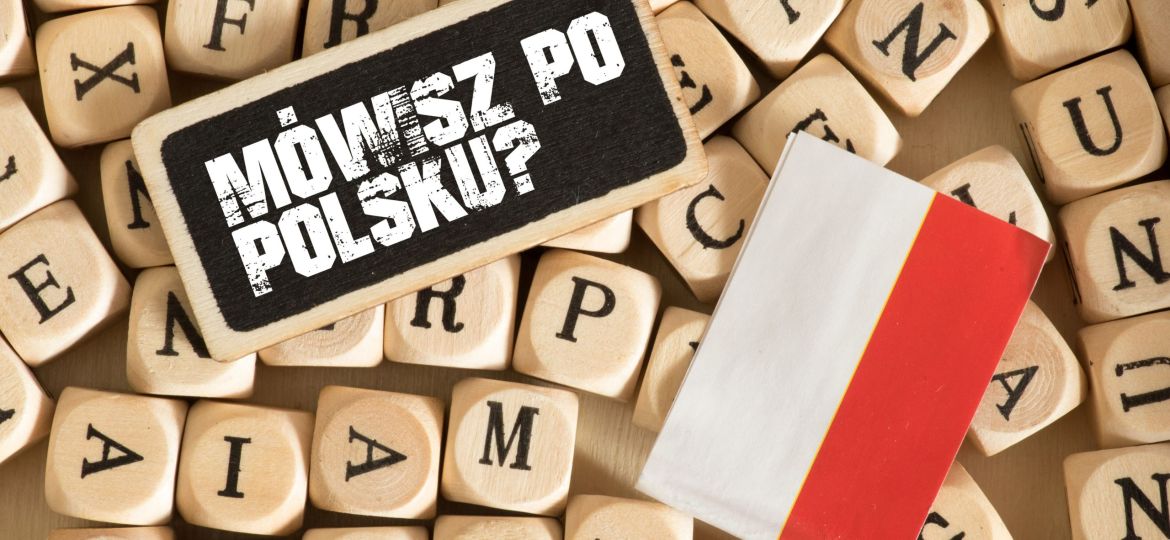
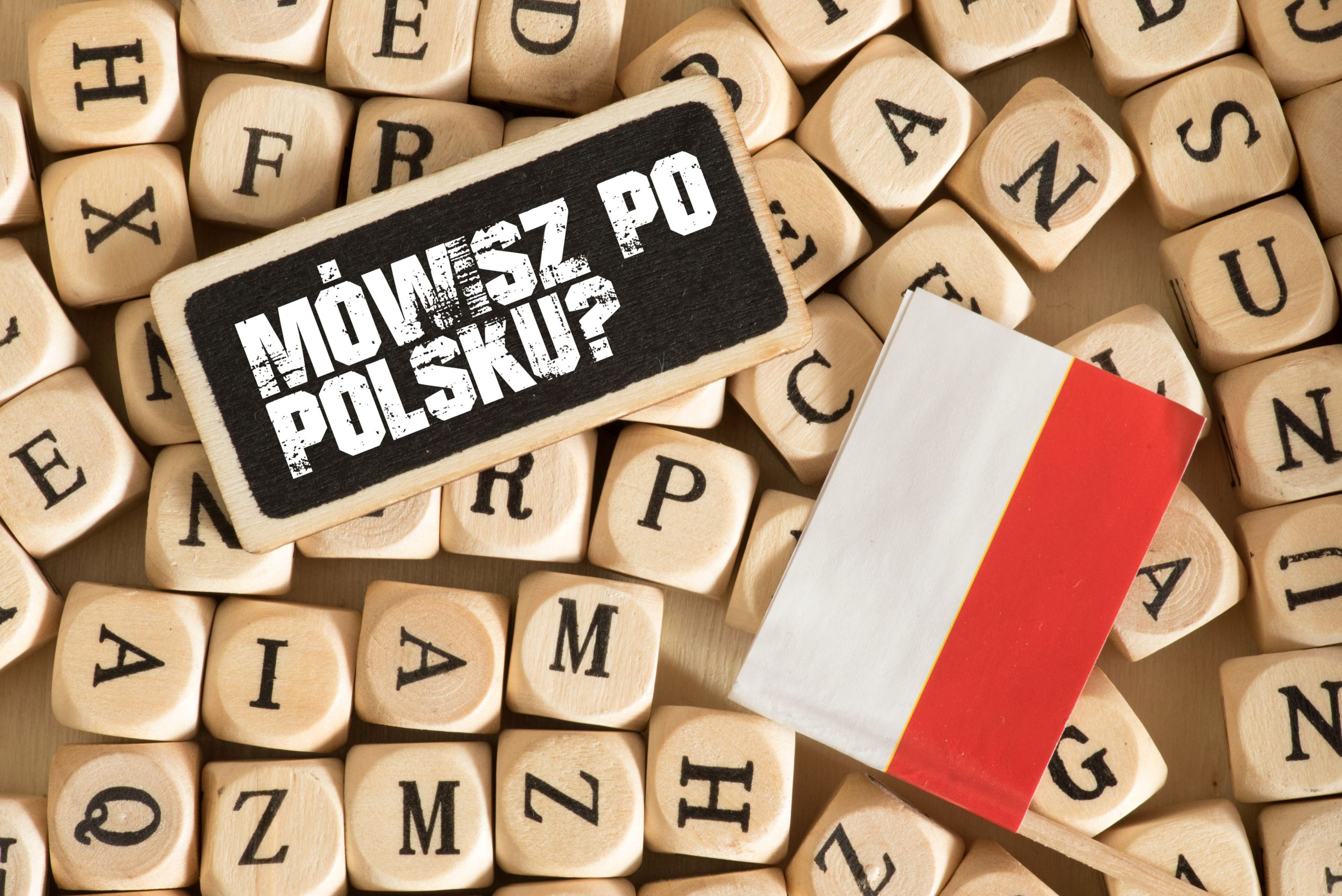
The Polish language is often mentioned as one of the most difficult languages in the world. The main reasons for this are its complicated grammar, difficult phonetics, and many hard-to-learn spelling rules.
Many foreigners never start learning Polish, even when they move to Poland. One of the most frequently repeated excuses for that is that some words in Polish are simply impossible to write down or pronounce. In this article, we will discuss some of these complicated Polish words and we will try to answer the question of why is the Polish language so difficult to learn.
Spis treści:
What makes the Polish language so difficult?
Polish is the official language of the Republic of Poland. It is spoken by not only about 38 million inhabitants of this country, but also a significant number of people living abroad. The most numerous Polish-speaking communities live mainly in the United States, Germany, the United Kingdom, France, Canada, Russia, Lithuania, Belarus, Ukraine, and Brazil. It is estimated that the total number of people in the world who use Polish as their first language is approximately 44 million.
The language of Poland is often considered one of the most challenging to learn, although in recent years Polish language courses have become more popular. Native speakers of the Polish language usually appreciate foreigners for even unsuccessful attempts to speak Polish. What makes Polish so difficult?
Grammar
Learning Polish for foreigners invariably involves remembering the contents of various tables with grammatical variants. The Polish language has as many as seven grammatical cases (nominative, genitive, dative, accusative, instrumental, locative, and vocative) for nouns, pronouns, and adjectives. There are also five grammatical genders: masculine, feminine, and neuter in the singular number and masculine-personal and non-masculine-personal in the plural. As if that were not enough, there are tons of exceptions to the grammar rules, and the only way to learn them is to memorize them.
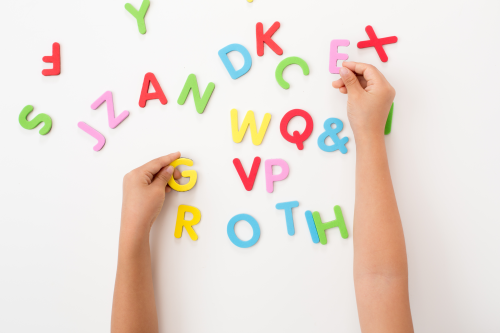


Orthography
The Polish alphabet, like many other European languages, is based on the Latin alphabet with the letters q, v, and x being usually absent and used occasionally in foreign words. It also includes letters with certain diacritic signs: the acute accent (ć, ń, ó, ś, ź); the overdot (ż); the tail for the nasal sounds (ą, ę) and the stroke (ł). Altogether the Polish alphabet consists of 32 letters; 9 vowels and 23 consonants. Additionally, in Polish orthography we can find digraphs, which are pairs of characters pronounced as a single sound that does not correspond to the normal values of the two characters combined. In Polish, the following digraphs are used: ch, cz, dz, dż, dż, rz, and sz. There is also one trigraph in the Polish language: dzi.
As if that was not enough, in Polish some characters are pronounced the same, for example: u and ó, rz and ż, ch and h, and the difference between them is purely orthographic. There are some general principles regarding spelling, but because of many exceptions, mastering spelling can be difficult even for native users of the Polish language.
Pronunciation
Pronunciation in Polish is regular. Vowels are pronounced similarly to their counterparts in many other European languages, and once you learn what sounds the consonants correspond to, you will be able to pronounce the words correctly even when you read them for the first time. Moreover, unlike, for example, in the Russian language, in Polish the stress is almost always placed on the penultimate (next-to-last) syllable.
So why is Polish considered so difficult to pronounce? Because of the most troublesome feature, which is complex consonant clusters – connected consonants with no vowel between them. This phenomenon can be found in many languages, but while in English there can be a series of no more than three consonants, in Polish words we can see even five consonants appearing as one cluster. Their pronunciation can be really difficult for foreigners, who look at Polish words, and can see only an incomprehensible series of consonants. Below, we have gathered some of the hard-to-pronounce Polish words to illustrate this problem.
The most difficult words to pronounce in the Polish language
Żółć
This word may be short, but it is a real head-scratcher for people who have never learned Polish because it is written with only polish letters modified with diacritic signs. The good news is that if we learn to read these letters, pronunciation is not as difficult as in many other Polish words. “Żółć” means “bile”.
Szeleścić
This word can be hard to pronounce, but makes a great onomatopoeia because it means “to rustle” and thanks to the consonants sz and ś it sounds like the sound it describes.
Źdźbło
The meaning of the word is “a grass-stalk” and it consists of five consonants and only one vowel at the very end, making it very difficult to pronounce. Fortunately, the consonants “dź” are a digraph, which means they are pronounced by a single sound.
Pszczyna
Pszczyna is a town in the Silesian Voivodeship with over 25,000 inhabitants. Pronouncing its name is problematic due to the cluster of three consonants (p and digraphs sz and cz) at the very beginning of the word.
Szczęście
Ironically, it means “happiness”, something foreigners trying to learn to spell and pronounce this word certainly don’t feel. The word begins with two Polish digraphs (sz and cz), followed by the letter e with a diacritic sign also called a nasal e sound, then another letter with a diacritic sign (ś), another digraph (ni), and finally the last letter e, the only one that should not be a problem for students trying to learn Polish.
Księżniczka
The word means “princess” and sounds surprisingly unpleasant to the ears of a foreigner. This is the fault of many consonants in the word, which make it very difficult to pronounce.
Szymankowszczyzna
Szymankowszczyzna is a village in the Mazowieckie Voivodeship with one of the longest place names in Poland. It is a real challenge to pronounce it mainly due to the cluster of consonants in the middle of the word (w and the digraphs sz and cz).
Grzegorz Brzęczyszczykiewicz
This is the full name that appears in the cult Polish film How I Unleashed the Second World War from 1969. The character of the movie is taken to the prison and this is how he introduces himself to the Nazi officer responsible for keeping track of the prisoners’ identities. Then, when asked about his place of residence, he follows up with “Chrząszczyżewoszyce, Łękołody district” to upset the officers trying to write it down even more.
Gżegżółka
This Polish word is hard to pronounce, but also considered the most difficult to write. The spelling of this word is very unusual and full of exceptions to the orthography rules, so there is no other option but to learn it by heart. Fortunately, you will not see this word too often, because it is an outdated term for “cuckoo” which in Polish is now called “kukułka”.
Szczebrzeszyn
Szczebrzeszyn is the name of a town in the Lubelskie Voivodeship, with a population of less than 5,000. Due to its complicated name, Szczebrzeszyn is often called the “Capital City of Polish Language” and every August a literary festival is organized there.
Chrząszcz
Learning the pronunciation of this word is one of the biggest challenges in the Polish language. It simply means a beetle, but memorizing its meaning is the least of the problem. This word is written only with digraphs (ch, rz, and sz, cz) separated by one vowel – nasal a sound, i.e. the letter a with a tail.
Interesting fact: the last two words from our list appear in a well-known poem by Jan Brzechwa, which is also one of the most popular tongue twisters in Poland: “W Szczebrzeszynie chrząszcz brzmi w trzcinie i Szczebrzeszyn z tego słynie”. This means “In Szczebrzeszyn a beetle buzzes in the reed, for which Szczebrzeszyn is famous”.
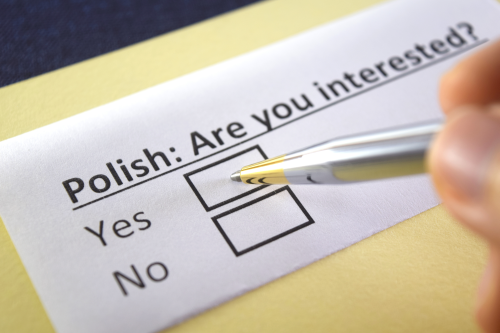


Longest Polish words
The longest words in a given language are a fun facts for students. The longest words in each language depend on the word formation rules and what types of words are being considered.
Languages can be divided into two categories: agglutinative languages and non-agglutinative languages. In agglutinative languages, words can be formed by compounding, which makes it possible to coin words consisting of even thousands of characters. In Europe, examples of this type of language are Hungarian, Finnish, Estonian, and Turkish.
Very long Polish words can be created as adjectives from numerals and nouns. Even though they are created within the allowed grammar rules, and they are not nonsense words, they are barely used in real written or spoken language. Below is a list of the longest Polish words.
Dziewięćsetdziewięćdziesięciodziewięcionarodowościowego
This word consists of fifty-four letters, and it is the genitive singular form of an adjective meaning roughly “of nine-hundred and ninety-nine nationalities”. It is often considered the longest Polish word.
Dziewięćdziesięciokilkoletniemu
This word is also an adjective coined from numerals and nouns. It consists of thirty-one letters and its meaning is “ninety-and-some years old one”.
You can create a longer word similar to this one that consists of as many as 176 letters: “Dziewięćsetdziewięćdziesiątdziewięćmiliardówdziewięćsetdziewięćdziesiątdziewięćmilionówdziewięćsetdziewięćdziesiątdziewięćtysięcydziewięćsetdziewięćdziesięciodziewięcioletniego”, which means: “of 999,999,999,999 years old”.
Konstantynopolitańczykowianeczka
This word is supposed to mean “a young woman of Constantinople” (now Istanbul) and consists of thirty-two letters. However, it is artificially created as a joke, and the correct form of this verb would be “konstantynopolitaneczka”.
Pięćdziesięciogroszówka
The last long Polish word on our list is “pięćdziesięciogroszówka”, which, unlike the previous examples, actually can be found in spoken and written language. The noun consists of twenty-three letters and stands for a fifty groszy coin.
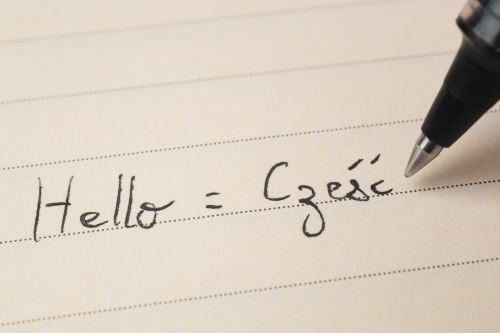

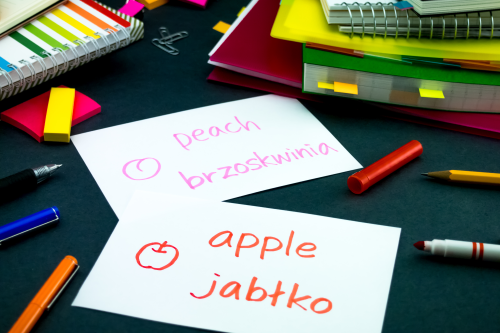
Learn Polish with us!
Learning Polish is certainly a huge challenge and many people are afraid to take it up. Although Polish is by some considered to be one of the most difficult languages in the world, and it usually takes several months of learning to start using it, it is an interesting and extremely rich language, and mastering it can bring you a lot of satisfaction and appreciation from your Polish friends.
If you would like to start your adventure with Polish, we invite you to our language school, where a qualified teacher will take care of your progress in learning this language. We offer courses for individual clients as well as company courses. Feel free to contact us!
What to check for employees’ language knowledge? Use Focus Audit Tool, our online platform for language audits.

